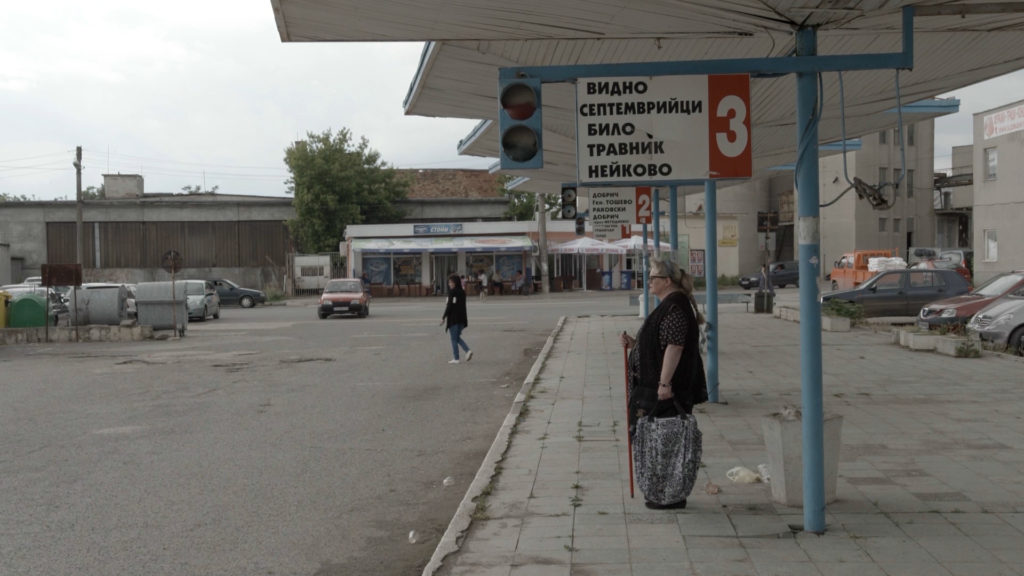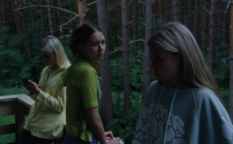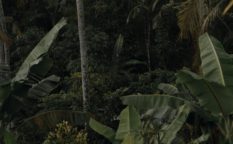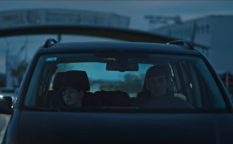Review: Bulgarian Dream (2019)

The usual narrative about migrations is that the young, able-bodied people from poorer countries move towards the richer ones with better work conditions and market dynamics in order to make a better life for themselves and their families. There are also migrations the other way around, from the richer countries to the poorer ones driven either by the new investment opportunities or the “digital nomad”-type of lifestyle. However, another category that has characteristics of the both aforementioned is often overlooked: the elderly people from the Western countries choose to spend the rest of their lives abroad where their pensions considered to be meager at home are enough to secure them a better quality of life somewhere abroad.
This is the case with Petra, the protagonist of Bulgarian Dream directed by Srđan Šarenac. The film had its festival premiere last year at AJB Doc Film Fest in Sarajevo, before heading to more festivals like this year’s edition of Beldocs.
Since she retired, Petra could barely make ends meet from one pension to another: in the expensive city such as Hamburg, after she covers her rent and bills, only a miserable sum of €100 is left at her disposal to buy food for the whole month. That is the reason why she wants to move to Bulgaria, to the coastal town of Kavarna, and spend the rest of her life there. She wants to live a life, to pursue her painting hobby, and that is enough of the reason for her to try to learn the difficult Slavic language and the Cyrillic alphabet. She needs to pack up what is left from her life in Hamburg, to arrange the move, while she also worries if her beloved dog will survive the whole process. But once she finds herself in Bulgaria, she has to face a different type of challenges: she has to accommodate to the new environment where the poverty looks differently and has a more severe form than in her homeland. Powered by her will and with the aid of her new friend, she is slowly settling in.
Bulgarian Dream is, from its first- to the last shots followed by a textual info-card presenting epilogue of Petra’s migration to Bulgaria, also sharing the information that she is just one of over 10.000 German retirees to live in Bulgaria. The film is a TV-friendly documentary. Its runtime of 52 minutes points to that direction and the style Šarenac opts for is along those lines. We observe Petra trying to wrap up one routine and start another, while the on-the-nose musical clues, accordion for Germany and a brass band from the Balkans, paints the picture to the full. As a protagonist, Petra is an average woman that the wider audience can sympathize with, but also very open to invite the cameras to her modest life. Clear in its structure and competent in realization, Bulgarian Dream is easy to follow and understand.
Šarenac’s strongest asset in Bulgarian Dream is his approach to the subject-manner based on informativeness and the understanding of people who are part of a certain social phenomenon, from the regional to pan-European scope. His feature-length documentary debut Village Without Women (2010) dealt with exactly what is listed in the title, but also the quest of one of the village’s men to relive that once vibrant community. His next effort, Two Schools (2017), about the two educational institutions divided on the ethnic grounds, sharing the same building in the Bosnian town of Travnik, was warmly received on the regional level for exposing one of the long-standing post-war paradoxes. Bulgarian Dream questions the European states’ ability to give a person a chance at decent life while being under the fire of inflation, gentrification and the “rat race” the younger and the stronger wilfully participate in.
Original title: Bugarski san
Year: 2020.
Runtime: 52’
Countries: Serbia, Croatia, Bosnia and Herzegovina
Languages: German, Bulgarian
Directed by: Srđan Šarenac
Written by: Srđan Šarenac
With: Petra Kallenbach
Cinematography by: Thilo Schmidt
Editing by: Ksenija Petričić
Sound design by: Nenad Kovačević
Sound recording by: César Fernández
Produced by: Srđan Šarenac, Veronika Janatková
Co-produced by: Leila Dedić, Sead Kreševljaković
Production company: Novi Film
Co-production company: Al Jazeera Balkans
Supported by: Creative Europe Media
















